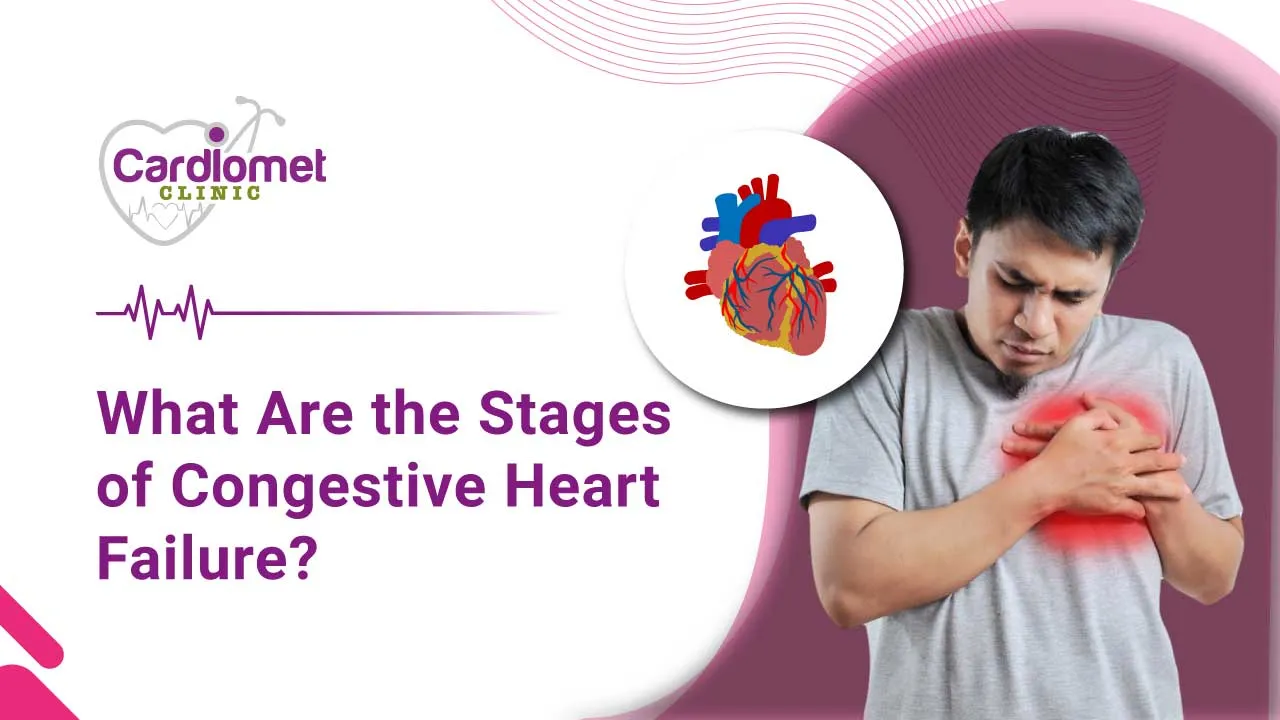Understanding the Stages of Congestive Heart Failure (CHF)
Congestive heart failure (CHF) is a chronic condition in which the heart is unable to pump blood efficiently, leading to a range of symptoms and complications.
Knowing the stages of CHF helps patients and their families understand the progression and severity of the condition and the corresponding treatment options and management strategies available at each stage.
This article will provide an in-depth look at the different stages of congestive heart failure, with a focus on patient-centered information.


Stage 1: Preclinical or High-Risk Stage
Stage 1 CHF is the earliest phase with no apparent symptoms. However, individuals at this stage may have underlying risk factors and conditions that can contribute to the development of CHF, such as high blood pressure , diabetes, obesity, or a history of heart disease.
Early detection and intervention during this stage are crucial for preventing the progression of CHF. Regular medical check-ups, maintaining a healthy lifestyle, and managing existing health conditions can help reduce the risk of developing CHF.
Stage 2: Mild or Compensated Stage
During Stage 2 CHF, symptoms begin to appear but are mild and may not significantly impact daily activities. Common symptoms include fatigue , shortness of breath, and mild exercise intolerance.
At this stage, diagnostic tests and procedures, such as echocardiograms, electrocardiograms, and blood tests, are used to confirm CHF diagnosis. Treatment generally involves lifestyle modifications, such as dietary changes, exercise, and weight management, as well as medications to manage symptoms and slow the progression of the disease.
Stage 3: Moderate or Decompensated Stage
Stage 3 CHF is a progression of the condition, with noticeable symptoms that affect daily life. Worsening symptoms include increased fatigue, difficulty breathing, and limitations in physical activities.
The impact of Stage 3 CHF on quality of life highlights the need for more aggressive treatment and management.
In addition to lifestyle modifications and medications, patients may require additional medical interventions, such as the use of a pacemaker or implantable cardioverter-defibrillator (ICD).
Stage 4: Severe or End-Stage
Stage 4 CHF is the most advanced and severe stage, with symptoms that persist even at rest. Debilitating symptoms include severe shortness of breath, fluid retention, and frequent hospitalizations.
Treatment options at this stage are limited, and the focus shifts to palliative care and improving quality of life. Advanced treatments, such as heart pumps or heart transplantation, may be considered in some cases.
Treatment and Management Strategies for Each Stage
An overview of the treatment options available for each stage of CHF includes:
- Lifestyle modifications: healthy diet, exercise, weight management, smoking cessation, and stress reduction.
- Medications: diuretics, angiotensin-converting enzyme (ACE) inhibitors, beta-blockers, and others to manage symptoms and slow disease progression.
- Surgical interventions: pacemakers, ICDs, heart pumps, or heart transplantation in severe cases.
- Cardiac rehabilitation programs: structured exercise, education, and support for managing CHF.
Regular medical follow-ups and adherence to treatment plans are essential for managing CHF effectively.
Conclusion
Understanding the stages of congestive heart failure is crucial for diagnosis, treatment, and management of this chronic condition.
Early detection, timely intervention, and comprehensive management strategies can significantly improve the quality of life for individuals living with CHF.
If you or a loved one is experiencing any symptoms or risk factors associated with CHF, it is important to seek medical advice and take appropriate steps to manage the condition. Remember, a proactive approach to your heart health can make all the difference.




